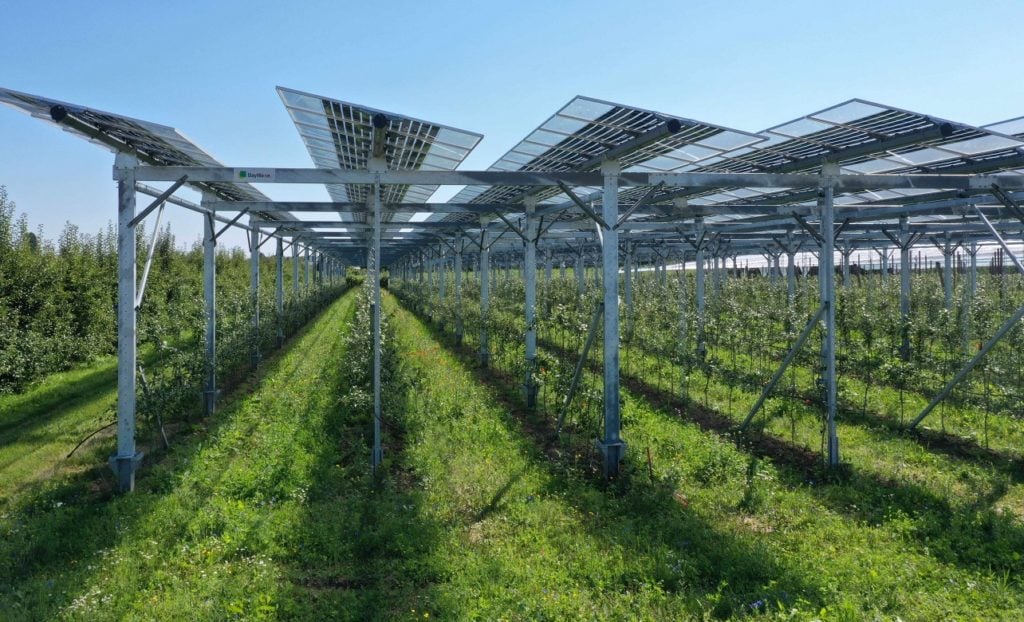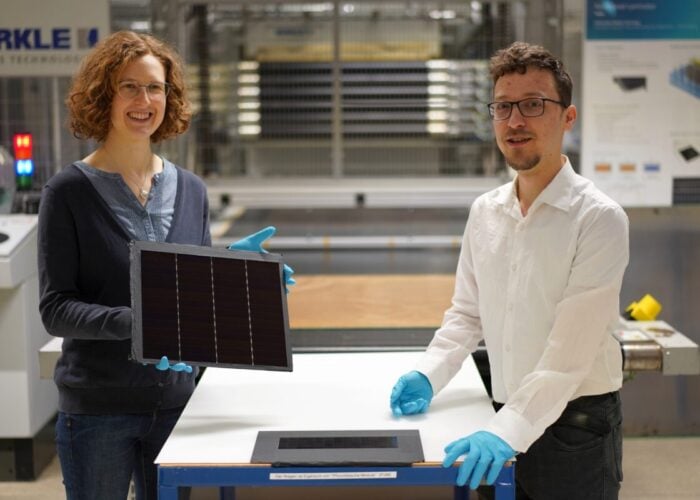
Renewables developer BayWa r.e. and the Fraunhofer Institute for Solar Energy Systems ISE have built a new research project to explore how solar systems can protect plants and fruit from extreme weather.
Constructed in the German state of Rhineland-Palatinate, the agrivoltaic facility features a 258kWp solar array and will see the partners test different PV module configurations to identify the impact on plant growth and crop yields.
Try Premium for just $1
- Full premium access for the first month at only $1
- Converts to an annual rate after 30 days unless cancelled
- Cancel anytime during the trial period
Premium Benefits
- Expert industry analysis and interviews
- Digital access to PV Tech Power journal
- Exclusive event discounts
Or get the full Premium subscription right away
Or continue reading this article for free
The publicly funded, five-year project will begin by comparing apple production under three different crop protection systems: rain-blocking foil protection, hail protection nets that do not block rain, light-permeable PV modules and tracking modules that block rain if necessary. Two different types of modules are used, with solar cells arranged either in strips or in a block pattern.
Researchers will investigate how eight different apple varieties grow under the solar system and how the array protects the fruit from hail, heavy rain, strong sunlight, frost or extreme temperatures.
Electricity from the solar installation will supply a watering system as well as an electric tractor used on-site from manufacturer Fendt, which is one of four additional partners involved in the project alongside BayWa r.e. and Fraunhofer ISE.
As well as protecting agricultural assets, the agrivoltaic project aims to demonstrate the economic benefits for farmers, including lower and more predictable electricity bills and reduced investment costs in crop protection.
The potential synergies for agrivoltaics combined with various fruits and other crops are considerable, said Stephan Schindele, head of product management agri-PV at BayWa r.e., adding: “We see agri-PV as a long-term solution to help farmers adapt to the consequences of climate change. We can preserve the existing ecosystem and even enhance it through synergy effects and solar power generation.”
Another project from BayWa r.e. and its Dutch subsidiary GroenLeven in the Netherlands was expanded earlier this year to test how solar systems can provide a more stable environment for growing redcurrants.
In a recently published feature in PV Tech Power, Schindele explored the mutual benefits of agrivoltaics to both solar farm operators and farmers alike, and revealed what is needed to take the sub-sector forward.






